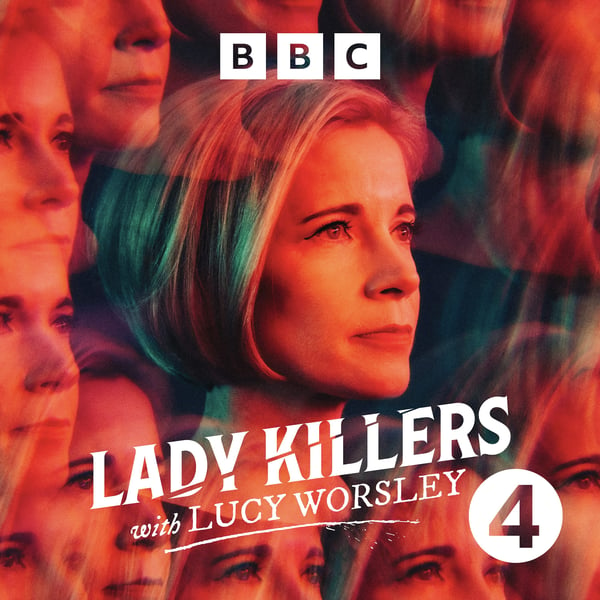7. Mary Ann Cotton
Lady Killers with Lucy Worsley
BBC
4.7 • 908 Ratings
🗓️ 25 July 2022
⏱️ 30 minutes
🧾️ Download transcript
Summary
Lucy Worsley investigates the crimes of Victorian women from a contemporary, feminist perspective.
This time, Lucy visits County Durham in North East England, to reinvestigate the woman known as Britain’s first female serial killer. Mary Ann Cotton was accused of murdering her stepson in 1872, after telling the local grocer that she was sure her stepson will die soon. When her stepson died a few days later, the police were called in.
Following a rushed post-mortem and inquest, Cotton seemed to have got away with it - his death was declared a case of natural causes. But more tests and a second post mortem revealed that her stepson had been poisoned. Mary Ann Cotton was arrested, put on trial, and sentenced to be hanged. She maintained her innocence right up until she was led to the gallows.
Although convicted of one murder, historians now believe that Mary Ann Cotton killed up to 21 people.
Lucy visits Beamish, the Living Museum of the North, to see the unsuspecting murder weapon, and Cotton’s former home in West Auckland, to see where she last lived.
Alexandra Wilson, an author and barrister who has practiced in both family and criminal law, talks Lucy through the legal implications of the case, including whether she would represent Cotton today.
Lucy asks if Mary Ann Cotton was a cold and calculated killer, or a desperate and vulnerable mother in need of an income from insurance payouts.
Historian Rosalind Crone puts the story into the context of the Victorian era. Was Mary Ann Cotton just trying to better herself? And why was it so easy for her to remain undetected for so long?
This is a case that highlights the domestic role of women and how they could, theoretically, get away with murder.
Producer: Hannah Fisher Readers: Clare Corbett and Jonathan Keeble Sound Design: Chris Maclean
A StoryHunter production for BBC Radio 4
Transcript
Click on a timestamp to play from that location
| 0:00.0 | Before this BBC podcast kicks off, I'd like to tell you about some others you might enjoy. |
| 0:05.0 | My name's Will Wilkin and I Commission Music Podcast for the BBC. |
| 0:08.0 | It's a really cool job, but every day we get to tell the incredible stories behind songs, moments and movements, |
| 0:14.7 | stories of struggle and success, rises and falls, the funny, the ridiculous. |
| 0:19.1 | And the BBC's position at the heart of British music means we can tell those stories like no one else. |
| 0:24.6 | We were, are and always will be right there at the center of the narrative. |
| 0:28.6 | So whether you want an insightful take on music right now or a nostalgic deep dive into some of the most famous and |
| 0:34.4 | infamous moments in music check out the music podcasts on BBC Sounds. |
| 0:38.6 | BBC Sounds music radio podcasts. |
| 0:43.6 | Hi, Lucy here. Just before we get started, I want to let you know about another |
| 0:49.3 | BBC Radio 4 podcast series that I think you really like. It's called You're Dead to Me and it's hosted by Greg |
| 0:56.8 | Jenner. |
| 0:57.8 | Your Dead to Me is a comedy show that takes history seriously. My name's Greg Jena, I'm a public historian |
| 1:04.0 | and every episode I pair up a top historian with a top comedian for a funny fascinating |
| 1:08.6 | chat about something different from global history each time. We chat for about 55 minutes, you'll learn a lot, you'll laugh |
| 1:13.7 | a lot and it's plenty of fun, so why not check it out? |
| 1:16.7 | Thanks Greg. Well if you want to discover the many many amazing episodes available, you can |
| 1:22.2 | search for You're Dead to Me on BBC Sounds. Now let's get |
| 1:26.5 | started. This is Lady Killers, where history meets true crime from BBC Radio 4 with me Lucy Worsley. |
| 1:37.0 | Life among the workers of Victoria in England was tough. It was repetitive, it was |
| 1:46.2 | grinding, it was often dirty, and with children to feed women often had to rely upon husbands to earn the money to survive. |
| 1:56.3 | If a husband died and death was very much more part of life then, it wasn't uncommon for a woman to remarry quickly to ensure |
... |
Please login to see the full transcript.
Disclaimer: The podcast and artwork embedded on this page are from BBC, and are the property of its owner and not affiliated with or endorsed by Tapesearch.
Generated transcripts are the property of BBC and are distributed freely under the Fair Use doctrine. Transcripts generated by Tapesearch are not guaranteed to be accurate.
Copyright © Tapesearch 2025.

